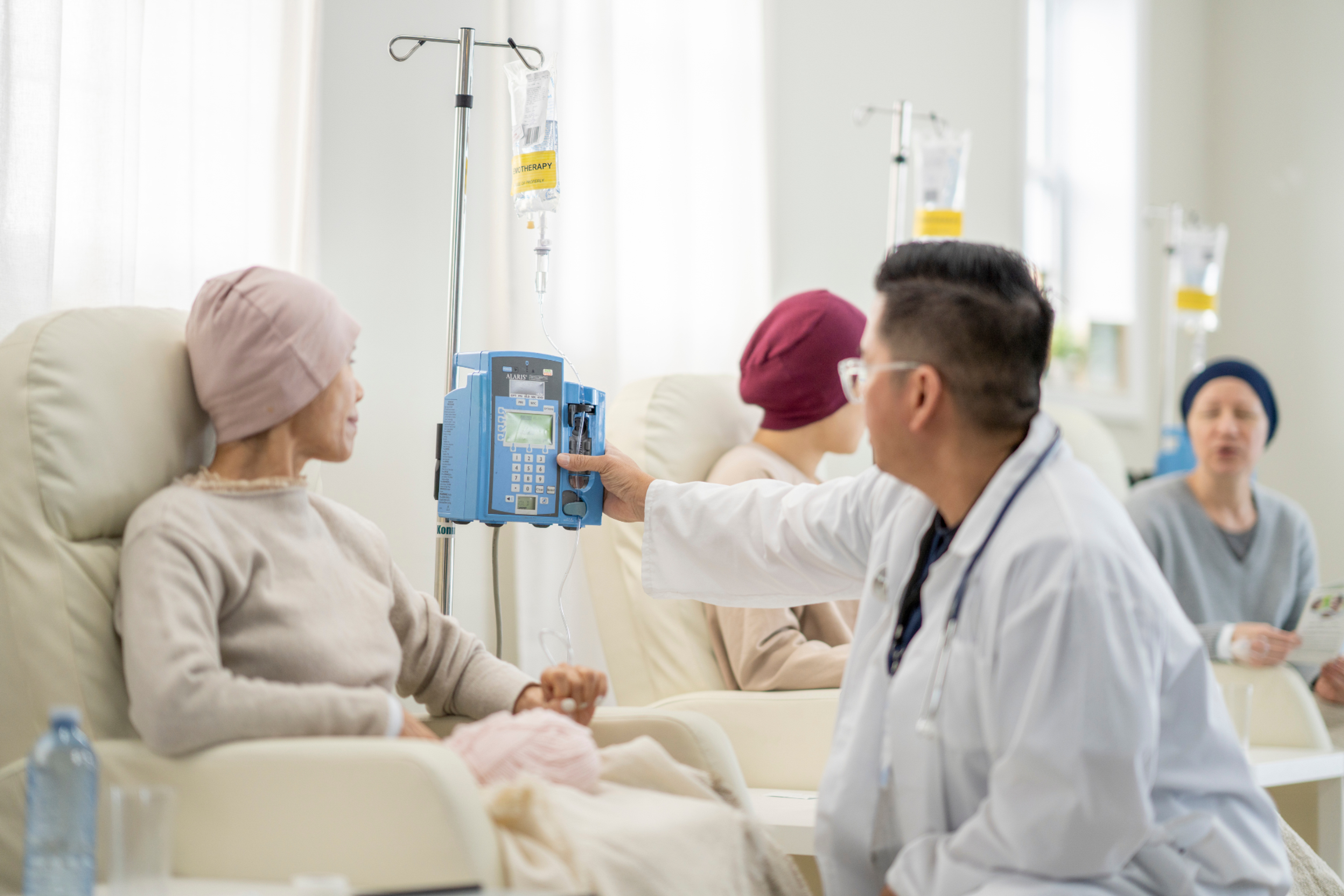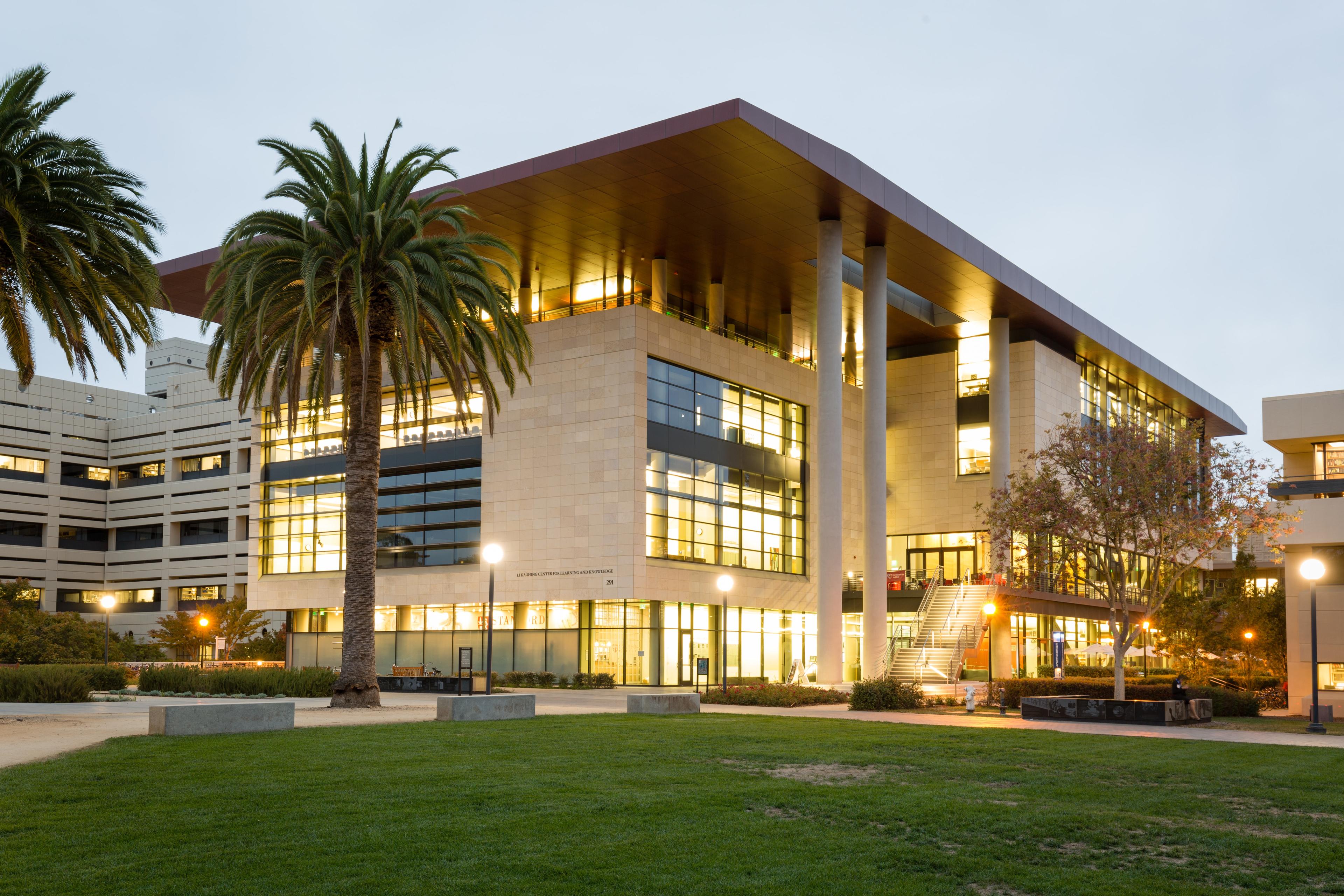The 10 Best Medical Schools for Oncology (2025)
Compare the 10 best medical schools for oncology in 2025, based on research strength, clinical training, and real career outcomes.
Posted June 13, 2025

Join a free event
Learn from top coaches and industry experts in live, interactive sessions you can join for free.
Table of Contents
Let's face it, cancer remains one of the most challenging diseases the world faces, and for oncologists, that challenge is personal. Every day, they work to find better treatments, extend lives, and support patients through some of the toughest battles they’ll ever fight.
Choosing to specialize in oncology means choosing a path that’s demanding, emotionally intense, and deeply rewarding. It requires not just medical skill, but also resilience, empathy, and an unwavering commitment to making a difference.
If you’re serious about becoming an oncologist, the school you choose matters more than you might think. The right program will not only teach you the science and latest therapies, but it will also prepare you for the real-world complexity, innovation, and leadership this field demands.
In this guide, we’ll break down the 10 best medical schools for oncology in 2025, including what makes each program stand out, key clinical and research opportunities, and how to choose the right path to launch your oncology career.
What Makes a Great Medical School for Oncology?
Oncology moves fast -- new treatments, new targets, new technologies. Great schools encourage you to be part of that progress early, offering summer research programs, mentorship with top cancer researchers, and opportunities to publish or present at major conferences like ASCO (American Society of Clinical Oncology).
The best medical schools for oncology include Harvard, UCSF, and Johns Hopkins, known for their NCI-designated cancer centers, top-tier clinical training, and fellowship match success.
But what separates these schools from one another?
Some of these schools offer dedicated oncology pathways, scholarly concentrations, or advanced electives where you can tailor your med school experience toward oncology even before residency.
Let's see what really separates a strong oncology-focused medical school from the rest:
The Top 10 Medical Schools for Oncology (Ranked)
When it comes to choosing the best medical school for pursuing a career in oncology, several institutions stand out due to their exceptional curriculum, clinical resources, faculty expertise, and research opportunities.
These schools provide a comprehensive education in oncology and equip students with the skills and knowledge necessary to excel in this specialized field.
1. Harvard Medical School
- Sample Courses:
- Affiliated Cancer Center:
Harvard Medical School is one of the most prestigious medical schools in the world. In partnership with HMS Affiliates, Harvard Medical School offers various of oncology programs, and one of them is the Harvard Radiation Oncology Program in Massachusetts General Hospital.
Massachusetts General Hospital's faculty are dedicated to providing compassionate care and innovative treatments, working closely with multidisciplinary teams to deliver personalized and comprehensive cancer care to their patients. Massachusetts General Hospital strives to advance the field of oncology through cutting-edge research and superior patient outcomes.
2. Johns Hopkins Medicine
- Sample Courses (Elective):
- Biology of Cancer
- Fundamentals of Cancer: Cause to Cure
- Introduction to Cancer Research
- Affiliated Cancer Center:
The curriculum at Johns Hopkins University School of Medicine is designed to cover all aspects of cancer care, from diagnosis to treatment and survivorship. Students have access to cutting-edge research opportunities at the Sidney Kimmel Comprehensive Cancer Center, which is one of the leading cancer research institutions in the world.
Johns Hopkins University School of Medicine's oncology program epitomizes the institution's commitment to training physician-leaders who excel in patient-centered medical practice and contribute to advancements in understanding human health and disease.
3. UCSF School of Medicine
- ACGME Training Program (Fellowship Program):
- Affiliated Cancer Center:
The University of California, San Francisco (UCSF) oncology program stands at the forefront of advancing health worldwide through cutting-edge biomedical research, graduate-level education, and patient care of the highest quality. The UCSF Helen Diller Family Comprehensive Cancer Center (UCSF Helen Diller Family CCC) integrates basic science, clinical research, epidemiology, and patient care across the UCSF system.
As a National Cancer Institute-designated comprehensive cancer center with the NCI's highest ranking, the UCSF Helen Diller Family CCC is dedicated to scientific excellence and the integration of diverse research approaches to cancer. Within the Division of Hematology and Medical Oncology, fellowship training programs provide fellows with unparalleled opportunities to engage in cutting-edge research and clinical practice while benefiting from UCSF's collaborative environment.
4. Cornell University -- Weill Cornell Medicine
- Fellowship Program:
- Affiliated Cancer Center:
Cornell Medical School University is another top choice for aspiring oncologists. The institution is known for its multidisciplinary approach to cancer care and its commitment to advancing the field through groundbreaking research.
Cornell University offers a specialized oncology track that allows students to gain hands-on experience in various aspects of cancer treatment, including surgery, radiation therapy, and chemotherapy. The school's close collaboration with the MD Anderson Cancer Center provides students with unparalleled clinical opportunities and exposure to the latest advancements in oncology.
Cornell University's oncology program, housed within the Division of Hematology & Medical Oncology, stands as a beacon of excellence in education and mentorship. Under the guidance of world-renowned specialists, students and fellows receive comprehensive training rooted in the principles of translational research.
Medical students benefit from immersive experiences in hematology and oncology research, ranging from summer blocks to extended research sabbaticals, under the mentorship of esteemed faculty members. Additionally, the program actively engages in graduate medical education, training and supervising internal medicine residents and hematology/oncology fellows.
5. University of Toronto Faculty of Medicine
- Fellowship Program:
- Affiliated Cancer Center:
Another notable medical school with a strong oncology program is the University of Toronto. University of Toronto's oncology program combines a rigorous academic curriculum with extensive clinical training, allowing students to develop a well-rounded skill set in oncology. University of Toronto's commitment to personalized medicine and innovative approaches to cancer care makes it an attractive choice for aspiring oncologists.
The University of Toronto oncology program is a rapidly evolving specialty offering diverse opportunities in research, teaching, and professional development. Despite being one of the newest subspecialties within the Department of Medicine, the division has experienced rapid growth and now boasts a team of over 60 members, making it one of the largest divisions in the department.
More than 50% of division members notably hold university position descriptions as clinical-investigators, highlighting the integral role of clinical research in cancer care.
The PGY-4 Entry Programs at the University of Toronto are advanced training pathways for physicians who have completed core internal medicine (PGY 1–3) and are ready to specialize further. These programs offer focused clinical training, research opportunities, and mentorship in various internal medicine subspecialties, preparing residents for expert roles in academic or clinical practice.
6. Penn Medicine
- Fellowship Program:
- Affiliated Cancer Center:
The Division of Hematology and Oncology at Penn Medicine is a nationally recognized leader in patient care, research, and education. Under the leadership of Dr. Alison Wakoff Loren, the division offers comprehensive services across 15 specialized clinical programs, addressing both malignant and benign hematologic conditions. Patients benefit from a multidisciplinary approach that integrates medical oncology, hematology, radiation oncology, surgical oncology, and supportive care services, ensuring personalized treatment plans.
The division's three-year Hematology/Oncology Fellowship Program is designed to cultivate future leaders in the field. Fellows receive balanced training in solid tumors, hematologic malignancies, stem cell transplantation, and benign hematology, with opportunities to engage in diverse research projects across Penn's extensive network, including the Abramson Cancer Center and the Wistar Institute. The program emphasizes individualized mentorship and offers access to advanced degree programs in biostatistics, epidemiology, and translational research.
7. UT Health Houston - McGovern Medical School
- Sample Fellowship Curriculum:
- Inpatient Malignant Hematology & Oncology
- Ambulatory Malignant Hematology
- Ambulatory Breast Oncology
The Division of Hematology/Oncology at UT Health Houston’s McGovern Medical School offers a comprehensive three-year fellowship program designed to prepare physicians for careers in both clinical practice and research.
The curriculum is structured around the ISAR philosophy (Immersion, Scholarship, Acumen, and Resilience) aiming to cultivate well-rounded oncologists equipped for the multifaceted challenges of the field. Under the leadership of Dr. Syed H. Jafri, the program provides robust mentorship and encourages participation in research projects, with fellows often presenting at national conferences such as ASCO and the European Hematology Association. This fellowship is particularly supportive of international medical graduates, offering J1 visa sponsorship and fostering a diverse and inclusive learning environment.
8. Duke University School of Medicine
- Fellowship Program:
- Hematology-Oncology Fellowship Program
- Affiliated Cancer Center:
The Duke Division of Medical Oncology, a key component of the Duke Cancer Institute, is renowned for its comprehensive approach to cancer care, research, and education. The division's Hematology-Oncology Fellowship Program offers rigorous clinical and research training, preparing fellows for leadership roles in oncology.
Fellows engage in diverse rotations across Duke's medical facilities, including specialized clinics in areas like bone marrow transplantation and solid tumor oncology. Research is a cornerstone of the division, with opportunities spanning basic science, translational studies, and clinical trials. Fellows can pursue individualized research tracks, supported by Duke's extensive resources and mentorship from over 70 full-time faculty members.
9. Columbia University Irving Medical Center
- Affiliated Cancer Center:
- Herbert Irving Comprehensive Cancer Center
- NewYork-Presbyterian Hospital
The Division of Hematology/Oncology at Columbia University Irving Medical Center (CUIMC) is a leader in comprehensive cancer and blood disorder care, integrating cutting-edge research with compassionate patient treatment.
The division's fellowship program provides rigorous clinical training and research opportunities, preparing fellows to become leaders in the field of hematology and oncology. Fellows engage in diverse patient care experiences across CUIMC and affiliated institutions, including rotations in solid tumor oncology, leukemia, and bone marrow transplantation. The program emphasizes scholarly development, encouraging fellows to participate in translational research projects and contribute to advancements in cancer therapy.
10. Stanford University School of Medicine
- Affiliated Cancer Center:
- Stanford Cancer Institute
The Hematology and Medical Oncology Fellowship at Stanford Medicine is built for physicians who want to lead in both patient care and research. Fellows train across Stanford’s top-tier cancer programs, including bone marrow transplant, CAR-T therapy, and outpatient oncology clinics.
Whether you're aiming to become a clinician-scientist or an academic leader, the program offers two distinct tracks; one focused on research and the other on education and quality improvement. You’ll work closely with world-class faculty, access groundbreaking innovations from nearby biotech hubs, and get the flexibility to shape your own path. It’s a rigorous but supportive environment designed to launch meaningful careers in hematology and oncology.
Oncology-Focused Medical School Comparison
| Medical School | Location | Acceptance Rate | Avg. GPA | Avg. MCAT | NCI-Designation |
|---|---|---|---|---|---|
| Harvard Medical School | Boston, MA | 2.7% | 3.9 | 520 | Yes |
| Johns Hopkins School of Medicine | Baltimore, MD | 6% | 3.9 | 521 | Yes |
| Stanford University School of Medicine | Stanford, CA | 2.3% | 3.89 | 519 | Yes |
| UCSF School of Medicine | San Francisco, CA | 2.5% | 3.87 | 517 | Yes |
| University of Pennsylvania (Perelman) | Philadelphia, PA | 4.4% | 3.9 | 521 | Yes |
| MD Anderson/UTHealth (McGovern) | Houston, TX | 9% | 3.8 | 512 | Yes |
Admission and Program Details
Getting into a top medical school with a strong oncology focus is no small feat, and for good reason. Oncology is one of the most intellectually demanding and emotionally intense fields in medicine. Schools are looking for more than just strong stats; they’re looking for future leaders in cancer care.
Most programs expect a completed bachelor’s degree with solid performance in pre-med coursework (biology, chemistry, physics, and math). A competitive MCAT score is important, but it won’t carry the application on its own. Schools want to see a track record of curiosity, resilience, and genuine interest in oncology, and that shows up through research, shadowing, community engagement, and your personal story.
What Admissions Committees Are Really Looking For
If you’re aiming for oncology, academic excellence is table stakes. What separates candidates is their ability to show why this work matters to them. Have you volunteered in a cancer center? Been part of a lab researching tumor biology? Advocated for a family member going through chemotherapy? Those experiences matter. Personal statements that reflect emotional intelligence, not just ambition, often resonate most.
Schools also take research seriously, especially those affiliated with major cancer centers. Applicants who’ve contributed to oncology-related research or publications (even in a supporting role) tend to have an edge, especially when paired with strong mentorship letters.
What the Training Looks Like
Once admitted, medical school typically spans four years. The first two are heavily classroom-based and focus on the foundational sciences: anatomy, physiology, pharmacology, pathology, and biochemistry. At oncology-focused institutions, you’ll start seeing cancer-specific material early, not just in lectures, but in integrated case studies and seminars led by oncologists.
In the latter two years, you move into clinical rotations. You’ll spend time across a range of departments, but at top oncology programs, your exposure to cancer care starts early and runs deep. This includes rotations in medical oncology, surgical oncology, radiation oncology, and pediatric oncology. These experiences aren’t just observational, you’ll be involved in patient care, treatment discussions, and tumor board reviews alongside physicians who are shaping the future of cancer treatment.
Where Students Get an Edge
What separates good programs from great ones is how intentionally they expose students to the complexities of cancer care. At the best schools, you don’t just follow a checklist, you’ll be encouraged to take electives in cancer genetics, immunotherapy, palliative care, and clinical trials. Some programs even let you participate in longitudinal oncology clinics, where you follow the same patients over time, a powerful way to understand cancer as more than a diagnosis.
Students are also taught how to communicate with empathy, not just from a textbook, but through real patient interactions, role-play sessions, and faculty feedback. In oncology, the ability to deliver tough news with compassion and clarity is a clinical skill just as critical as interpreting a biopsy.
What Happens After Medical School
After graduation, aspiring oncologists typically pursue a residency in internal medicine or pediatrics, followed by a fellowship in medical, radiation, surgical, or pediatric oncology. These paths are competitive and research-heavy, so your early interest in the field, including the projects, mentors, and clinical moments you choose during med school, can heavily influence your trajectory.
Programs affiliated with major cancer centers (like MD Anderson, Dana-Farber, or Memorial Sloan Kettering) are often pipelines to the most competitive fellowships, so it pays to think ahead and align your clinical and research interests with the right mentors early on.
What to Expect: Oncology Training During Medical School
If you’re serious about becoming an oncologist, it’s important to understand how medical school actually prepares you for that path, and where to focus your time and energy along the way. While most U.S. medical schools don’t offer a formal “oncology track” during your MD, the best programs embed oncology training early, often, and in ways that go far beyond textbook knowledge.
Years 1 & 2: Laying the Scientific Foundation (and Building Your Angle)
In your preclinical years, you'll cover the basic sciences anatomy, physiology, pathology, pharmacology -- through the lens of various systems, including oncology. Expect to dive into the biology of cancer, mechanisms of tumor formation, metastasis, and principles of chemotherapy and radiation.
But here’s the tactical tip:
Start connecting early with oncologist-mentors or research groups at your med school. Even a small research assistant role in an oncology lab (clinical trials, tumor boards, immunotherapy) can give you a huge head start when residency and fellowship applications roll around. You’re not expected to be an expert, just someone willing to show up, learn, and contribute.
Many top programs (like Stanford, UCSF, or Harvard) offer elective seminars or longitudinal preceptorships in oncology during these first two years. DON'T SKIP THESE. They help you get early clinical exposure and build relationships with faculty in your field of interest.
Years 3 & 4: Clinical Rotations
Once you start your clinical rotations, this is where you see how oncology actually works in the real world. Most schools include time in internal medicine, surgery, pediatrics, and ob/gyn; all of which will intersect with cancer patients. Whether you’re managing a breast cancer case in OB or seeing end-of-life care in internal medicine, take every opportunity to learn how oncologists lead these multidisciplinary conversations.
At schools with strong cancer centers, you’ll often get a dedicated oncology elective, or be able to rotate through:
- Medical oncology (chemotherapy and systemic treatment)
- Radiation oncology (high-tech, physics-heavy treatment planning)
- Surgical oncology (tumor removal and reconstruction)
- Pediatric oncology (complex, often long-term care of children with cancer)
- Palliative care (a cornerstone of compassionate oncology practice)
If your school doesn’t require these electives, go out of your way to schedule them. Even two weeks with a strong oncology team can solidify your interest and lead to strong letters of recommendation.
Optional — But Highly Recommended: Subspecialty Electives & Tumor Boards
Top oncology faculty often run weekly tumor boards, where multidisciplinary teams review real cases and debate treatment plans. As a med student, even just attending these can sharpen your understanding of real-world decision-making. Ask to shadow or attend, as this shows initiative and helps you think like an oncologist.
Electives in pathology, radiology, or even genetics can also give you an edge, especially if you’re interested in cancer diagnostics, precision medicine, or research.
Build Relationships and Track Records
This part is key.
What separates strong oncology-bound med students from the rest is:
- Mentorship: Having an oncologist who knows your goals and can open doors
- Research experience: Even a poster presentation or case report in oncology shows you’re serious
- Patient-centered mindset: Oncology is about trust, compassion, and tough conversations. How you carry yourself in the clinic matters.
If your program offers a scholarly concentration or research track in oncology, take it. If it doesn’t, build your own. Schools love students who create opportunities, not just follow checklists.
Oncology Career Paths After Med School and Residency
Once you’ve finished medical school and completed your residency (usually in internal medicine, pediatrics, or surgery) your next steps in oncology start to take shape. This is where your career path really begins to specialize, and it's important to understand what options are out there, what training each one requires, and what kind of work you'll actually be doing day to day.
If you're thinking long-term, don't just ask, “Do I want to treat cancer?” Ask, “How do I want to contribute to the fight against cancer, through medicine, surgery, research, or prevention?”
Let’s walk through the main career tracks for aspiring oncologists.
1. Medical Oncologist: Leading Systemic Cancer Treatment
After internal medicine residency, those who want to become a medical oncologist pursue a 2–3 year fellowship in hematology/oncology. These specialists manage cancer through non-surgical methods: chemotherapy, immunotherapy, targeted agents, and emerging treatments.
You’ll work with patients long-term, building relationships as you guide them through diagnosis, treatment, remission, and sometimes end-of-life care. It’s one of the most emotionally demanding and rewarding roles in medicine.
What to expect:
- Heavy emphasis on precision medicine and clinical trials
- You’ll work closely with pathologists, radiologists, and geneticists
- Most medical oncologists split their time between clinic, research, and teaching
Best fit for: Students who love longitudinal care, complex decision-making, and driving innovation from the clinic side.
2. Surgical Oncologist: Operating on the Front Lines
Surgical oncologists are cancer surgeons. After medical school, they complete a 5–7 year general surgery residency, followed by a surgical oncology fellowship (typically 2 years). These physicians specialize in the resection of solid tumors; breast, GI, endocrine, sarcomas, and more.
You’re often the first physician who confirms a diagnosis through biopsy and imaging, and your skill in the OR can dramatically alter a patient’s outcome.
What to expect:
- Advanced training in oncologic resection, reconstruction, and tumor mapping
- Multidisciplinary collaboration, you’ll constantly work alongside radiation and medical oncologists
- Intense operative schedules, but the reward of seeing immediate impact
Best fit for: Hands-on learners who thrive in the OR and want to blend technical excellence with oncologic principles.
3. Radiation Oncologist: Precision Meets Physics
Radiation oncologists use high-energy radiation to kill or shrink tumors. After medical school, you’ll match into a 4-year radiation oncology residency (after a 1-year internship). It’s a field that requires both strong science fundamentals and empathetic patient communication.
Radiation oncologists create treatment plans based on imaging, tumor biology, and dose calculations, and monitor patients through weeks of therapy.
What to expect:
- Use of advanced tech like proton therapy and stereotactic radiosurgery
- Daily patient follow-up and side-effect management
- A relatively balanced lifestyle compared to other specialties
Best fit for: Students who enjoy technology, complex planning, and patient continuity.
4. Pediatric Oncologist: Treating the Toughest Cases in Young Patients
Pediatric oncologists complete a pediatrics residency followed by a pediatric hematology/oncology fellowship. The clinical and emotional complexity here is high; you’re often helping families navigate the unthinkable.
But pediatric oncology is also full of breakthroughs: survival rates for childhood leukemia, for example, have improved dramatically due to advances in collaborative research and personalized care.
Best fit for: Clinicians who want to combine scientific rigor with strong emotional resilience and a commitment to long-term family-centered care.
5. Cancer Prevention and Public Health
Not every oncology career path is hospital-based. Physicians passionate about cancer prevention and population health may focus on policy, screening programs, environmental exposure, and early detection systems.
These roles often combine an MD with an MPH or involve work in academic research centers, nonprofits, or government agencies (like the CDC or NCI).
Best fit for: Med students with a public health mindset who want to reduce cancer risk before it ever appears, through education, advocacy, or data-driven prevention.
Find the Best Medical School for You with Help from an Expert
Becoming an oncologist is a long but worthwhile journey that will allow you to help all kinds of patients and their families navigate difficult moments in their lives. The journey toward entering the field of oncology begins with applying to medical programs that will properly prepare you for the steps that follow, and though it won’t be an easy road, you don’t have to do it alone.
Our medical school admissions coaches can help you not only choose the right medical school for you, but can also assist you in preparing the materials necessary for the application process.
Read these next:
- A Guide to the T20 Medical Schools in the U.S.
- How to Write a Compelling Letter of Intent for Medical School
- How to Write a Powerful Personal Statement for Medical School
- Medical School Cost Breakdown: How Much Does It Actually Cost?
FAQs About Oncology-Focused Medical Schools
Which university is best for oncology?
- Many top-tier institutions offer exceptional oncology programs, but Harvard University consistently ranks among the best. Through its affiliation with Dana-Farber Cancer Institute, Harvard provides cutting-edge research opportunities in cancer biology, clinical exposure to complex cases like lung cancer, and world-class mentorship for future oncology residents.
What is the best major for oncology?
- There’s no single “best” major, but most students interested in oncology pursue degrees in biology, biochemistry, neuroscience, or health sciences. If your school offers it, a focus in cancer biology or molecular biology can provide a strong foundation.
How long is medical school for oncology?
- Becoming an oncologist requires four years of medical training in medical school, followed by a residency (typically 3–5 years, depending on specialty), and then a fellowship in oncology (2–3 years). For example, a future gynecologic oncology specialist would complete an OB-GYN residency and then a gynecologic oncology fellowship.
Where is the best place to study oncology?
- The “best place” depends on your career goals. If you’re focused on research, schools with strong funding in cancer biology and access to major cancer centers like Harvard University, UCSF, or MD Anderson are excellent. If your goal is hands-on experience managing patients early on, schools with integrated cancer clinics and strong community outreach can offer powerful exposure.

























